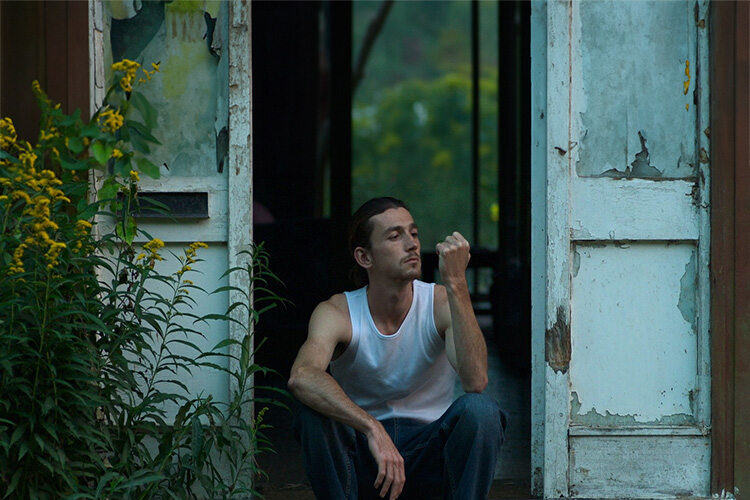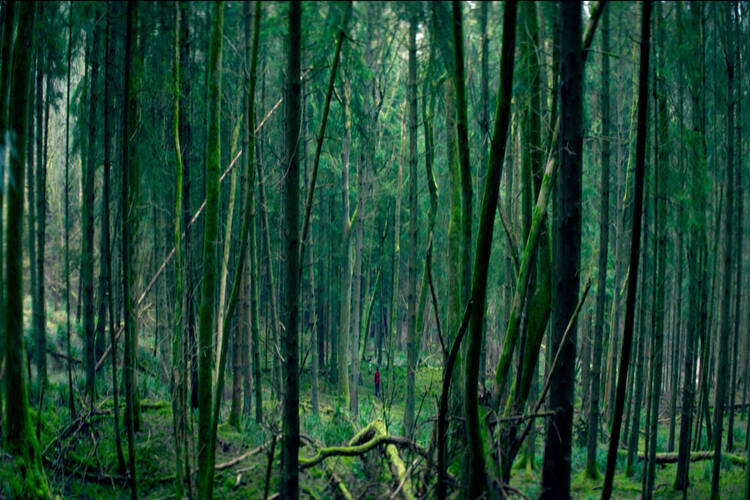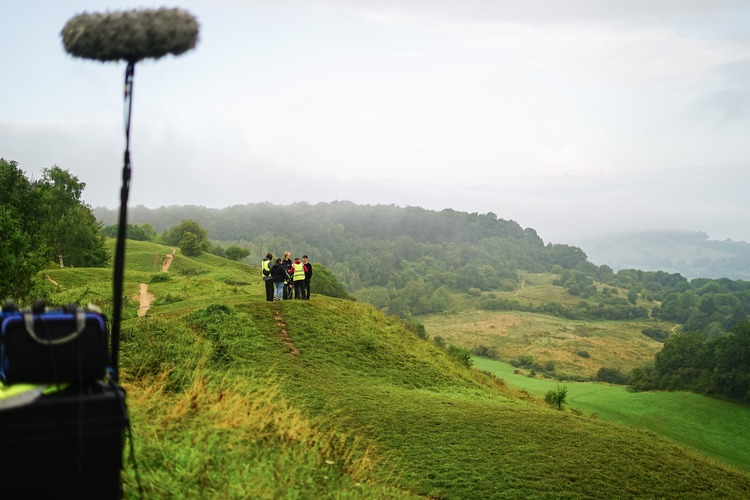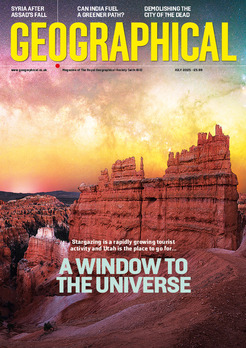
Writer-director Fridtjof Ryder shares his inspiration and process behind Inland (2022), a folktale film starring Rory Alexander & Mark Rylance
by Victoria Heath
Inland (2022) is a modern folktale that explores the fractured identity of a young man after the mysterious disappearance of his mother. Guided by a father figure and old friends, his journey through the dreamlike spaces of rural England brings him face to face with the loss that haunts him in ways he could never have expected.
Writer-director Fridtjof Ryder discusses the inspiration and filmmaking process behind Inland in an interview with Geographical.
What was your inspiration for Inland?
I’ve come to understand that a bunch of stuff inspired Inland. I was reading a bunch of new ecology stuff at the time, and The Dark Mountain Project.
Another main thing from the beginning was Gloucester, the town I grew up in, and wanting to do something there after knowing the feeling of living there really well. I also wanted to do something around the central dynamic of the father figure, the son who comes home and the missing mother. That was kind of where it started from.
Can you tell us more about the setting of the film?
It’s all really local. The main house, which is the father figure’s house, is the house of one of my teachers from back home. A lot of the locations were places you’ve worked in, or places you’ve grown up in or you’ve shot a rubbish short film. I wanted to bring all those places together. A lot of the crew were from there as well.

British weather can be notoriously inclement. Because you have a lot of scenes in natural surroundings, were there any difficulties in filming outside?
We kept feeling like we were a bit blessed. There was a storm right at the end, but the weather held for almost two and a half weeks of the shoot. But there’s kind of a thrill when you’re shooting outside. You can’t block off the sun’s lighting, you just have to deal with what’s there.
It’s like a two-edged thing – you get stuff where you’re like, well, we could have never thought of that if the lights falling just in the right way. But then you’re waiting for clouds to pass over for half an hour to be able to choose what you’ve been shooting. So it was both.
How long was the process in total to shoot the entire film?
We shot the whole thing in just under three weeks with long, long days. But we got it done. We didn’t have longer than that because people had to go off and do other things and other jobs to manage it in that block of time.

The music in the film really complements the visual depiction of nature in a lot of scenes. What was the creative process behind Inland’s score?
The music was by Bartholomew Mason, who lives in Gloucester. It was like a dance between the soundscapes, the world and then his music. And so it was really open. We would just go out and record a load of nature sounds in the forest, then you’re trying to think of ways to incorporate that back into the music. His music would affect what we were doing, how we were cutting the film together and vice versa. So it was really fun with him.
Many of the scenes in the film don’t rely on dialogue to convey emotion and a lot is left unexplained, like the lack of name for the main character. Why did you decide to approach Inland in this way?
It felt like that was the language to film wanted to be. I also like films that are really visual and that are open the whole time to how you interact with them, or how you see them.
I always thought film was so cool, because essentially, it’s like a whole new language. You can have a scene where someone’s looking at something and dependent on what it is that they’re looking at, it just completely changes the meaning. You don’t necessarily have complete control over the way the image will be interpreted all the time.
Do you have any particular scenes or filming processes that you particularly enjoyed in Inland?
It’s funny, because it’s also connected to the making of it. You can never see how different it must be when other people watch it, because you’re so inside it from having made it. So there’s so many experiences of enjoying a specific morning, or the feeling of shooting on a particular day.

But I think in general, the father-son stuff with Rory and Mark feels so strong to me, just the two of them together. It was just a joy to shoot that stuff. It was almost like they had the page of the script, and they could use as much of it as they wanted and kind of go off. And you just film them and you make sure to catch them.
You use voice-overs in the film to converge the two stories of the mother and son. Was that the way that you always envisioned intertwining their stories or did this emerge during the editing process?
It was a bit of both. But it was a real game.
Once we had Mark Rylance, and how he can play with his voice, it was like you needed a voice to match. So we tried lots of stuff. Finding Kathryn, in the end, was what swung it. She is such an insane actor and the stuff you can do with her voice is so insane. I was just watching loads of her stuff, and then rewriting the voice-over bits to fit in with how I heard her voice. It became interesting to make the voice-overs more abstract and have some sound like a half-poem, not a direct voice.
So it’s kind of a bit of both, but I think the voice-overs were probably a lot more boring earlier on.
Do you have a favourite movie that is filmed in this way?
I think Claire Denis’ films do that insanely well, such as Beau travail (1999). She’s completely uninterested in dialogue and straight linear narrative. She just shoots loads and loads of stuff with a loose script, moulding it in the editing process and in the music and sound.
The thing I love about her is that she just trusts the idea that if you make something with the right collaborators, and at the right point and something with the right intentions, the film will create itself a little bit and it’ll guide you where it wants to go.
That perfectly leads to my next question on the interpretative ending to the film. Of course, I don’t want to ask you to give a definitive meaning of it. But what sentiment did you want to leave your viewers with at the end of Inland?
One of the first images that stuck with me was the almost half-dream image of the unnamed main character taking off his clothes and walking into the forest, and you’re kind of ending a place which is almost the beginning again, just like a generation on.

What I really love about that ending is that you can read it in different ways depending on the day. There’s a coming back to nature, but it also seems really sad and scary – maybe it’s someone who’s sort of lost their mind and is just walking off into the forest. I like how both those things can be true with it, sort of depending on how you’re reading it.
Watch the trailer for INLAND here.
INLAND is in cinemas from 16 June www.inlandfilm.co.uk
Instagram: @inlandfilmofficial
Twitter: @FridtjofRyder / IG: @fritz.ryder




